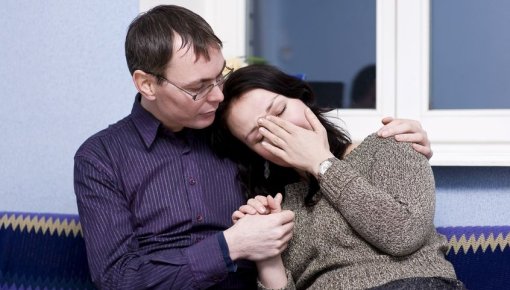My partner has endometriosis – What does that mean for me?

Having a partner who suffers from severe abdominal pain on several days every month will affect your life together too. It is not easy to deal with. If this pain is caused by endometriosis, effective relief is often available. But it's important to be aware of the possible benefits, limitations and disadvantages of the treatment options.
Men in particular may find it hard to understand how their partner’s period pain can be so bad that they regularly have to cancel plans. Perhaps you, too, have found yourself wondering why your partner can't simply cope with her period pain “like other women do.” The answer is easy: If your partner has endometriosis, her period pain is much worse than that of other women – so she is by no means just whining.
Endometriosis is a medical condition where the kind of tissue that usually lines the womb is also found in other parts of the abdomen. Known as endometrial implants, these areas of endometriosis tissue can vary in size. Like the lining of the womb, they build up and are shed every month. But, unlike period (menstrual) blood, the tissue that is shed in the abdomen can't leave the body. That often leads to inflammation and scarring.
About 1 out of 10 women have endometriosis. Whether or not it causes symptoms, and what kind of symptoms women have, depends on things like where the endometrial implants are and how inflamed they are. Some women hardly have any symptoms, whereas others are regularly knocked out of action by painful cramps. Endometrial implants can affect women’s fertility, too. Sometimes they only find out that they have endometriosis because they’re having trouble getting pregnant.
